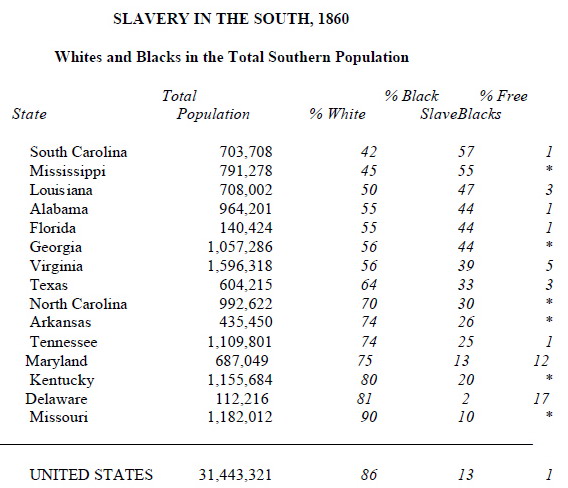Reconstruction Amendments
The Reconstruction Amendments are the Thirteenth, Fourteenth,
and Fifteenth amendments to the United States Constitution, adopted
between 1865 and 1870, the five years immediately following the Civil
War. This group of Amendments is sometimes referred to as the "Civil War
Amendments" or the "Three Reconstruction Era Amendments".
The Amendments were intended to restructure the United States from a
country that was (in Abraham Lincoln's words) "half slave and half free"
to one in which the constitutionally guaranteed "blessings of liberty"
would be extended to the entire male populace, including the former
slaves and their descendants.
The Thirteenth Amendment (both proposed and ratified in 1865) abolished slavery. The Fourteenth Amendment (proposed in 1866 and ratified in 1868) included a redefinition of citizenship, the Privileges or Immunities Clause, Due Process and Equal Protection Clauses. The Fifteenth Amendment, (proposed in 1869 and ratified in 1870) grants voting rights regardless of "race, color, or previous condition of servitude".
ARTICLE 13 -
Slavery Abolished1) Neither slavery nor involuntary servitude, except as
a punishment for crime, whereof the party shall have been duly convicted,
shall exist within the United States, or any place subject to their
jurisdiction.
2) Congress shall have power to enforce this article by appropriate
legislation.
This amendment was proposed to the State Legislatures
by the 37th Congress on February 1, 1865, and was ratified December 18,
1865. It was rejected by Delaware and Kentucky; was conditionally
ratified by Alabama and Mississippi; and Texas took no action.
ARTICLE 14 -
Citizenship Rights Not To Be Abridged1) All persons born or naturalized in the United States,
and subject to the jurisdiction thereof, are citizens of the United
States and of the State wherein they reside. No state shall make or
enforce any law which shall abridge the privileges or immunities of
citizens of the United States; nor shall any State deprive any person of
life, liberty, or property without due process of law, nor deny to any
person within its jurisdiction the equal protection of the laws.
This amendment was proposed to the State Legislatures
by the 39th Congress on June 16, 1866, and was ratified July 23, 1868.
The amendment was supported by 23 Northern states. It was rejected by
Delaware, Kentucky, Maryland and 10 ex-Confederate states. California
took no action. It was later ratified by the 10 ex-Confederate states.
ARTICLE 15 -
Equal Voting Rights1) The right of the citizens of the United States to
vote shall not be denied or abridged by the United States or by any
State on account of race, color, or previous condition of servitude.
2) The Congress shall have power to enforce the provisions of this
Article by appropriate legislation.
This amendment was proposed to the State Legislatures
by the 40th Congress on February 27, 1869, and was ratified on March 30,
1870. It was supported by 30 states; it was rejected by California,
Delaware, Kentucky, Maryland and Oregon. It was not acted on by
Tennessee. New York rescinded its ratification on January 5, 1870. New
Jersey rejected the amendment in 1870, but ratified it in 1871.
